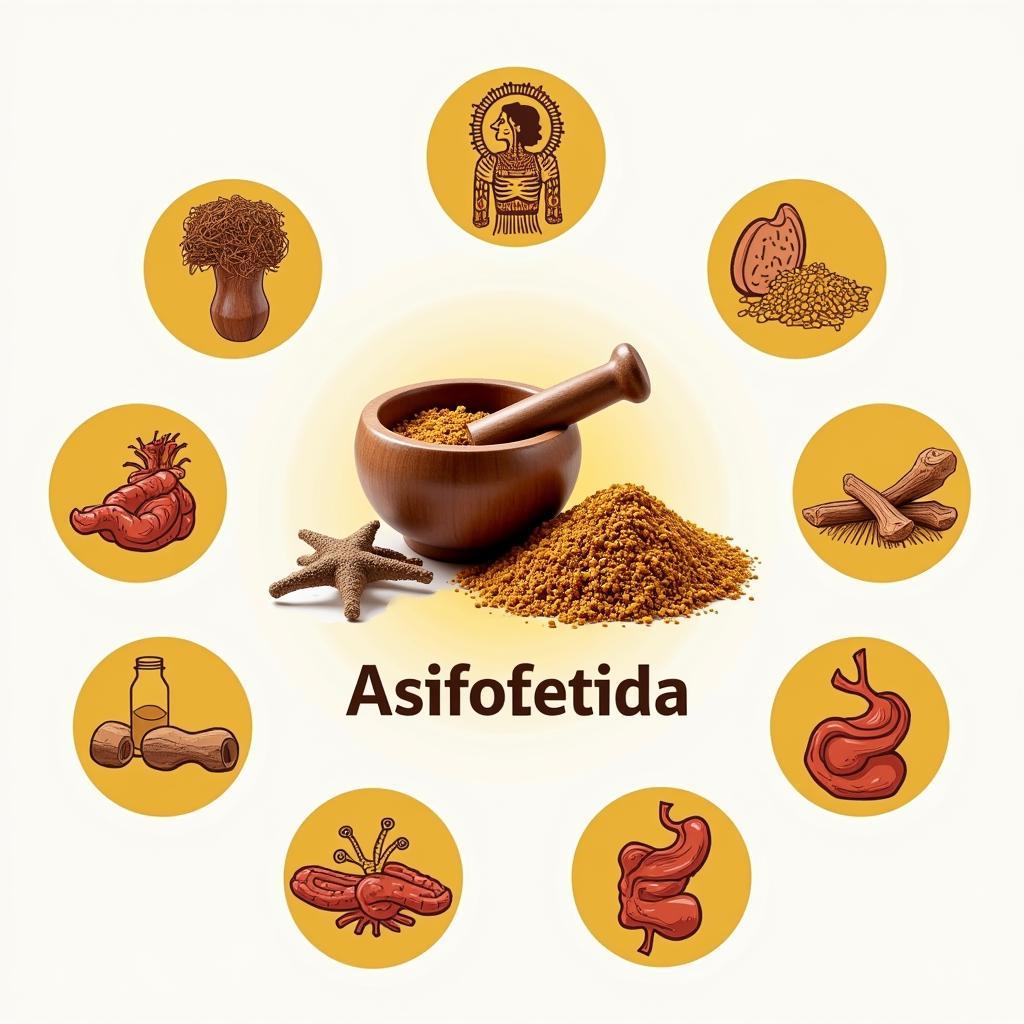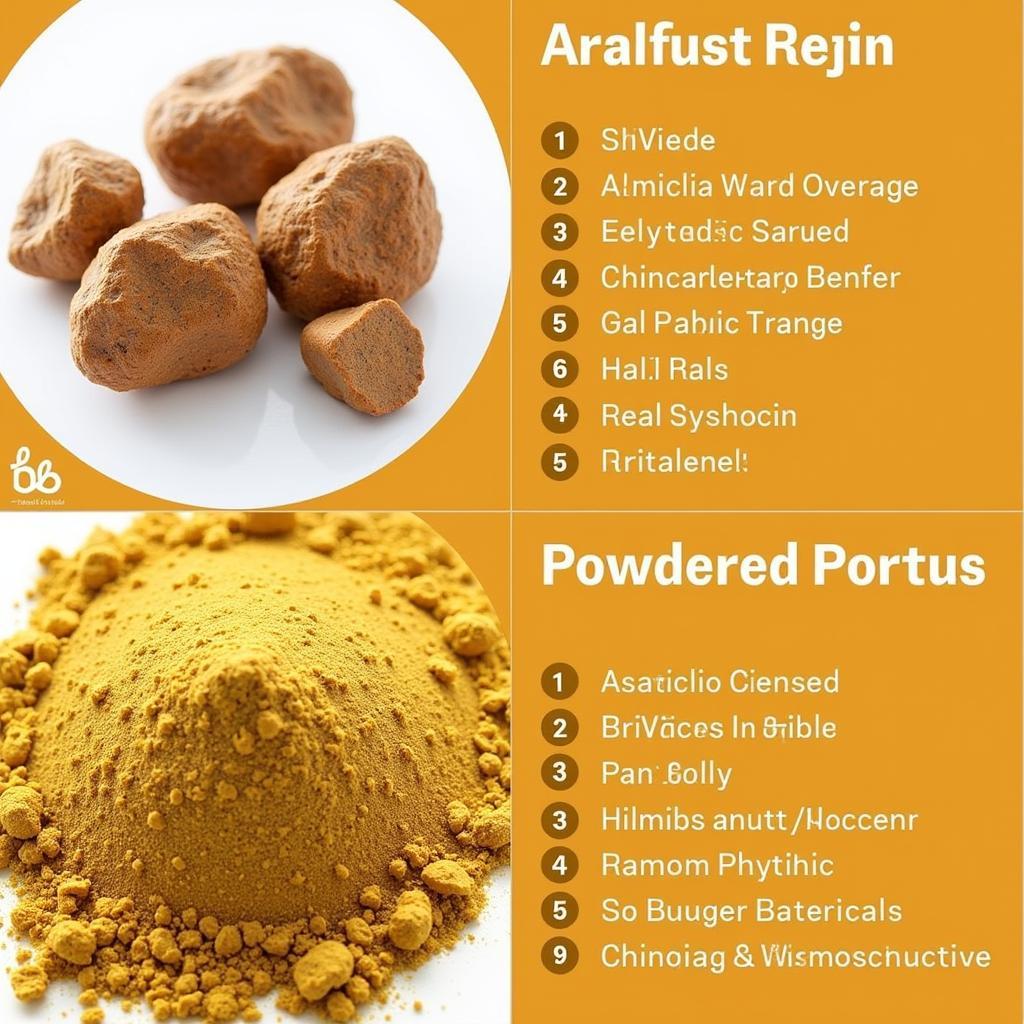Asafoetida, also known as hing, is a pungent resin with a distinct sulfurous aroma. This spice, derived from the Ferula plant, holds a unique place in various cultures, including within the Islamic world, where its culinary and medicinal applications, as well as its perceived spiritual properties, have been acknowledged for centuries. This article explores the multifaceted relationship between asafoetida and Islam, examining its uses, perceptions, and cultural significance.
Culinary Applications of Asafoetida in Islamic Cuisine
Asafoetida’s powerful aroma and flavor have made it a staple in certain Islamic cuisines, particularly in South Asia and parts of the Middle East. It acts as a flavor enhancer and digestive aid, often added to lentil dishes, vegetable stews, and meat preparations. The spice is typically used sparingly, as even a small amount can impart a strong flavor. In some regions, asafoetida is fried in oil before being added to a dish, mellowing its pungent notes and releasing a more nuanced aroma. The practice of using asafoetida in Islamic cooking is not universally observed, but where it is prevalent, it contributes a distinctive character to local culinary traditions.
Medicinal Uses and Beliefs Surrounding Asafoetida in Islamic Tradition
Beyond its culinary role, asafoetida has a history of medicinal use in some Islamic communities. Traditional healers have employed it for its purported anti-inflammatory, anti-flatulent, and expectorant properties. Some believe it can help alleviate respiratory ailments, digestive issues, and even certain nervous system disorders. It’s important to note that these are traditional uses and scientific evidence supporting these claims is often limited. However, the historical reliance on asafoetida for medicinal purposes reflects its perceived value in traditional Islamic healthcare practices.
 Traditional Medicinal Uses of Asafoetida
Traditional Medicinal Uses of Asafoetida
Spiritual and Cultural Significance of Asafoetida in Islam
In some Islamic cultural contexts, asafoetida is believed to possess spiritual properties. It has been associated with protection against evil spirits and negative energies. Some individuals may wear amulets containing asafoetida or burn it as incense for purification rituals. These practices are not universally endorsed within Islam, and their prevalence varies across different communities. However, they illustrate the diverse ways in which asafoetida has been integrated into cultural and spiritual practices within certain Islamic societies.
Asafoetida and Halal Dietary Practices
Given its plant-based origin, asafoetida is generally considered halal, meaning permissible for consumption according to Islamic dietary laws. However, Muslims are encouraged to ensure that any asafoetida they purchase is free from non-halal additives or processing methods. This is in line with the broader Islamic principle of consuming pure and wholesome foods.
 Asafoetida Resin and Powder
Asafoetida Resin and Powder
Conclusion: Asafoetida – A Spice with a Rich History in Islamic Cultures
Asafoetida, with its pungent aroma and diverse uses, has woven itself into the fabric of various Islamic cultures. From its role as a culinary spice to its perceived medicinal and spiritual properties, asafoetida continues to hold a unique position in these traditions. While scientific evidence supporting some of its traditional uses may be limited, its cultural significance and continued use in certain Islamic communities underscore its enduring appeal.
FAQ
- Is asafoetida halal? Yes, asafoetida is generally considered halal.
- What are the common culinary uses of asafoetida in Islamic cuisine? It is often used in lentil dishes, vegetable stews, and meat preparations.
- What are the traditional medicinal uses of asafoetida? Traditionally, it has been used for its purported anti-inflammatory, anti-flatulent, and expectorant properties.
- Does asafoetida have spiritual significance in Islam? In some cultural contexts, it is associated with protection against evil spirits.
- Where can I buy halal-certified asafoetida? Check specialty spice stores or online retailers that offer halal certifications.
Other related articles you might find helpful:
- Exploring Halal Spices in Southeast Asia
- The Medicinal Plants of Islamic Tradition
- Cultural Practices and Beliefs in the Islamic World
Need support? Contact us 24/7: Phone: 0369020373, Email: [email protected], or visit us at: Thon Ngoc Lien, Hiep Hoa, Bac Giang, Vietnam.

